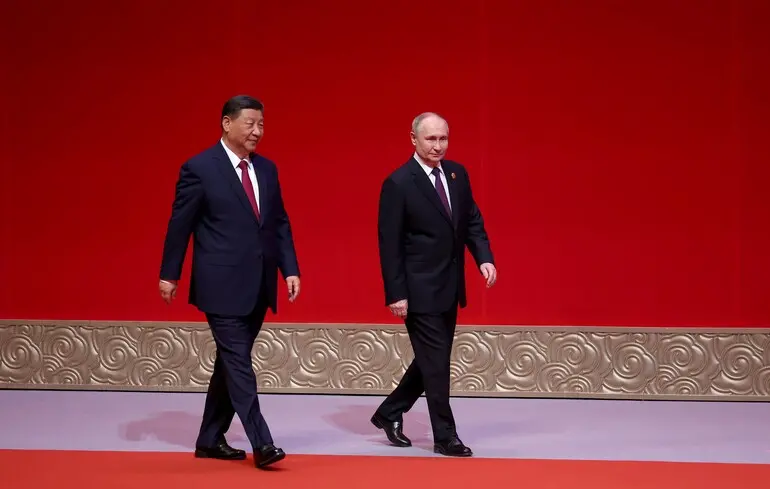Putin’s Visit to China: Key Diplomatic Talks Amid Tensions Over Ukraine War

This weekend, Russian President Vladimir Putin is set to undertake a highly significant and strategically important visit to China, which the Kremlin has described as “truly unprecedented and exceptional”.
This trip comes at a critical juncture for both nations and could influence the course of negotiations regarding Russia’s war against Ukraine.
The nearly week-long visit will include participation in the Shanghai Cooperation Organization summit, meetings with Chinese leader Xi Jinping, and a military parade in Beijing where Putin will be an “honored guest” alongside leaders of North Korea, Iran, and Cuba, among others.
Analysts believe that a central topic of discussion will be aligning their positions on the ongoing conflict in Ukraine, especially in the context of U.S.
efforts to find a ceasefire.
This visit is viewed as an opportunity for Moscow to gauge Beijing’s willingness to provide long-term support and to understand how China will respond if the U.S.
pressures it to influence Russia’s actions.
Energy cooperation is a key issue; the trade volume between Russia and China has grown to over $240 billion last year, a two-thirds increase compared to pre-invasion levels.
China is now the leading buyer of Russian oil and coal and is expected to surpass Europe as Moscow’s primary gas market soon.
Despite the ongoing conflict, experts suggest Russia’s dependency on China is unlikely to diminish, as Moscow seeks to clarify China’s future commitments regarding oil and gas purchases.
The discussions will also likely cover the “Power of Siberia-2” pipeline project and the expansion of existing oil pipelines.
Military collaboration, although publicly denied, is an important aspect—evidence shows China supplies equipment and technology vital for Russia’s military rebuilding, with estimates indicating China provides about 70% of machinery and 90% of semiconductors for Russia’s armed forces.
In return, Russia gains access to advanced military technology.
Officially, Beijing portrays itself as a neutral mediator, but the depth of covert support is well documented.
The visit will include symbolic gestures, notably the joint participation of Putin and Xi in the military parade on September 3 in Tiananmen Square, echoing the celebrations of Victory Day in Moscow and reaffirming their shared history and joint strength.
Their partnership is also reinforced through diplomatic and military measures, which concern Western governments.
Despite the current strategic partnership, experts highlight that a scenario of turning against each other remains unlikely, given their shared interests and mutual understanding of geopolitical realities.
Both leaders feel confident—China has recently averted a trade war with the U.S., extending tariffs truce, while Russia continues its military campaign in Ukraine despite warnings and sanctions from Washington.
U.S.
officials are keen to drive a wedge between Moscow and Beijing, but many analysts dismiss such hopes.
They argue that the Russia-China relationship is deeply rooted and will remain resilient, regardless of external pressures, driven by shared perceptions of history and power.
As relations develop, China is preparing for further demonstrations of support, including participation in military parades, signaling strength and alliance.
Ultimately, China’s approach embodies a complex role as silent player, partner, supplier, mediator, and observer—an approach that aims to maintain influence while balancing relations with both Russia and the broader international community.

